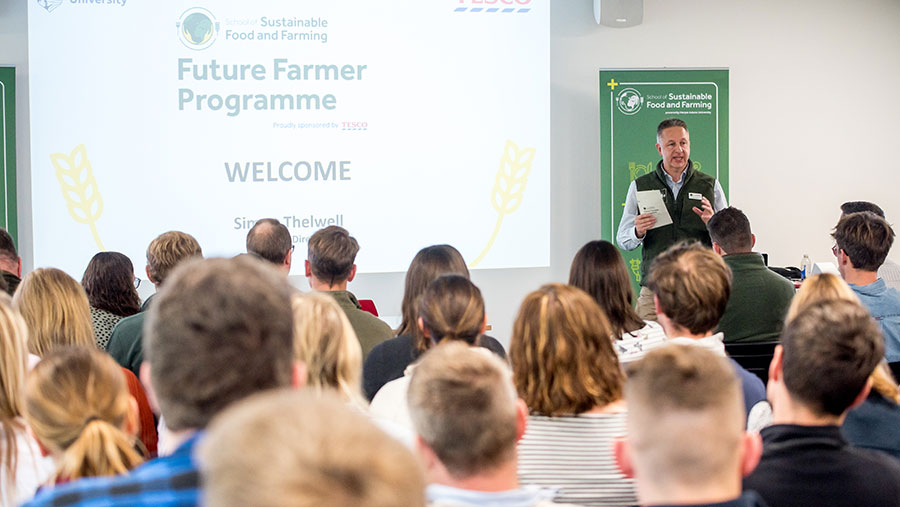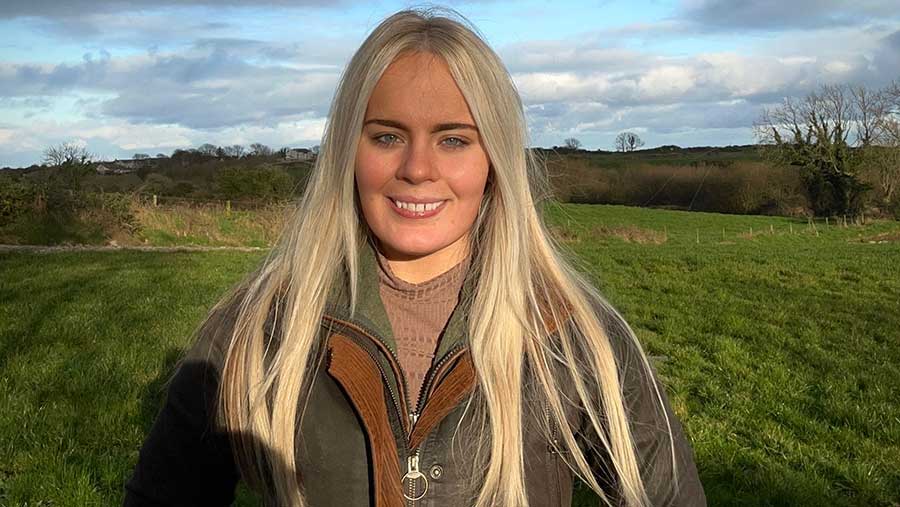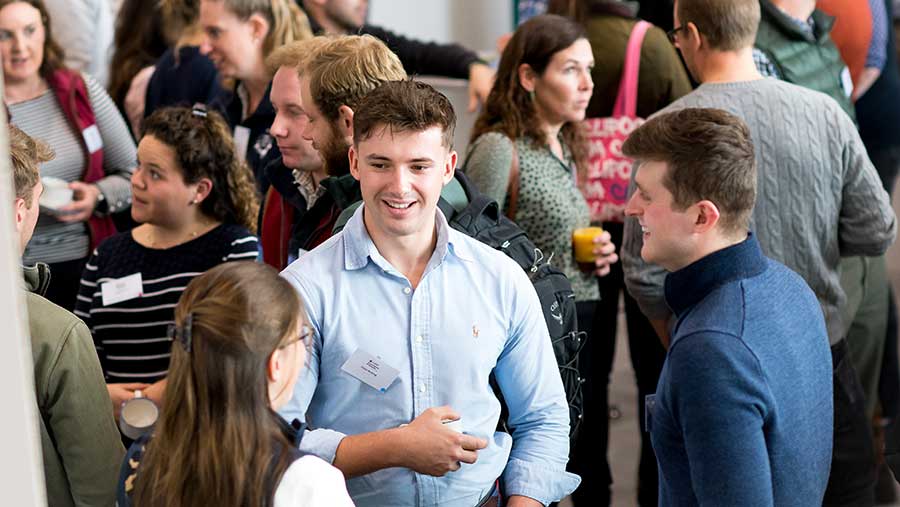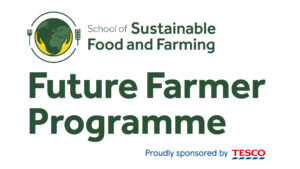Advertiser content
Sustainable food production – 3 lessons from a Future Farmer
Provided by
Harper Adams is the UK’s leading specialist university tackling the future development of the world’s food production, animal sciences, engineering, land management and sustainable business.
For more information see our website Harper Adams University
The School of Sustainable Food and Farming, based at Harper Adams University, has, since its inception in 2021, been supporting the next generation of farmers meet the sustainable food production challenge.
As part of that mission, the school is collaborating with Tesco to enable 75 farmers under the age of 40 to build on their understanding of sustainable food production, address their individual skills processes and provide a vision for what to do next for their own businesses.
The programme, launched in September 2023, has attracted participants from all over the agri-food sector and concludes in May 2024 before welcoming a new cohort of Future Farmers for 2024/5 (want to be one of the 2024/25 cohort? See the link further below).
Simon Thelwell, School of Sustainable Food and Farming Strategic Director said: “The transition to more sustainable food production is a significant change for many farmers, so understanding these issues, identifying the opportunities they present and being prepared to make changes is the key focus of the course and we’re delighted to welcome our learners from across the industry to address these issues head on.”

© Harper Adams University
Case study: Future Farmer Bronagh Dempster

Bronagh Dempster © Harper Adams University
Growing up in rural County Down, Bronagh favoured toy tractors over Barbies at a young age, first showing her passion for agriculture.
In her late teens, Bronagh started working at a local dairy farm prior to studying BSc Agricultural Technology at Queen’s University, Belfast.
Now, Bronagh works for Noble Foods as an agriculture sustainability graduate.
“Perhaps sustainability should be a homonym. It is a word that has vastly different meanings depending on who you ask.
“Even when narrowed down to agricultural sustainability, I could still fill hours discussing all the possible connotations.
“Hence, spending time discussing the topic with others and finding priorities is so important.
“In December, I spent two days at Harper Adams University for the Future Farmer conference.
“The conference is part of the Future Farmer scheme, facilitated by the School of Sustainable Food and Farming and sponsored by Tesco.
“I live and breathe sustainability every day in my role at Noble Foods but the topic continually evolves and as such, I must keep up.
“It is programmes such as the Future Farmer scheme that provide such value to both farmers and industry professionals, ensuring we are not left behind as key players in a topic that is in continuous evolution.
“Professor Michael Lee set the scene perfectly, explaining the creation and cycling of greenhouse gases in their various guises and reminding us of the challenge of net zero for agriculture.
“A challenge that brings so much opportunity. Perhaps in that room we felt the weight of this more than anyone as we directly or indirectly influence the land which holds so many solutions to this challenge.
“All of this whilst feeding a growing population.

© Harper Adams University
“Over the two days, we were treated to all perspectives on the future of agriculture: farmers, retail, industry and even a bank.
“Topics from carbon sequestration to lean management were discussed, filling the room with endless questions and an appetite for finding out more.
“Here’s my top three ‘takeaways’ from a conference that had dozens:
1. The importance of the right partners
“A recurring theme throughout the presentations was partnerships.
“We are blessed with some incredible advisory services in the agriculture industry – it is time to make full use of these services and collaborate.
“No entity is an island in this; we must be a community working together for the collective good of our industry.
“John Gilliland’s presentation on the ARCZero project in Northern Ireland typified this.
“The same applies for us as individuals and finding the right people to support us.
“This was eloquently presented by Nuffield Scholar Helen Wyman in her after-dinner speech on mentorships and agriculture.
“This is a topic of particular importance to me personally and Helen delivered it beautifully.
2. Equipping farmers and land managers with the right skills
Ben Williams of Leprino Foods made a statement during his presentation which I very much agree with.
“He said, ‘There are two systematic barriers to progress in UK agriculture: data and the skills to enact change.’
“I believe education and providing skills will be more important than innovation as we ready ourselves for the changes that agriculture will see.
“I hope that the deserved resources are given to educating and supporting farmers/land managers with skills for the future.
3. The immediacy of this challenge
“This particularly hit home for me as we listened to Abi Reader. Aside from being the deputy president at NFU Cymru, Abi is a farmer.
“She has seen first hand the challenges that a changing climate has had on her own farm and across the world, sharing some of the photos of these with us.
“Our land has been stretched by weather conditions like never before. Food production may be on the brink of disaster from season to season.
“This isn’t just 2040 or 2050 net-zero targets, this is a wake-up call to enact change now.
“I would like to thank Tesco for sponsoring this programme and all those at the School of Sustainable Foods and Farming for facilitating such a valuable experience.
“What a pleasure it is to be a part of this group and I look forward to our next session.”

Are you under 40 and a working farmer (or in a profession allied to farming)? Want to secure a limited place in the full-funded programme in 2024/25?
